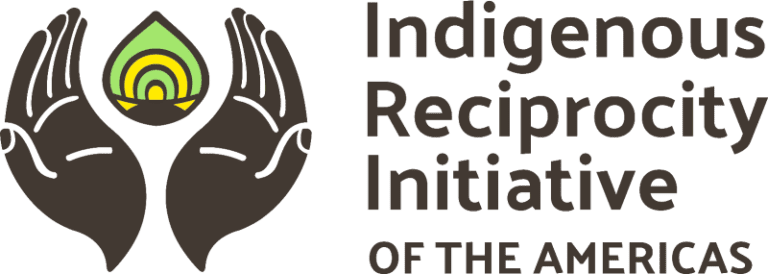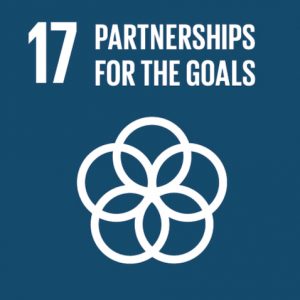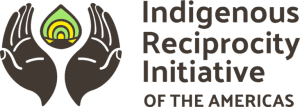
SELF-DETERMINATION IN THE AMERICAS
 We are excited about another win in our work to collaborate with allies empowering self-determination across the Americas. The Chacruna Institute of Psychedelic Plant Medicines’ Indigenous Reciprocity Initiative of the Americas program (IRI) chooses PSYDEH as one of only four Mexican organizations for their network of 20 non-profits across the Americas.
We are excited about another win in our work to collaborate with allies empowering self-determination across the Americas. The Chacruna Institute of Psychedelic Plant Medicines’ Indigenous Reciprocity Initiative of the Americas program (IRI) chooses PSYDEH as one of only four Mexican organizations for their network of 20 non-profits across the Americas.
The IRI and Why We Value Being Selected
IRI’s goal is to build a grassroots support network that is offered educational resources while promoting organizations designed and implemented by and with local Indigenous people to address their own self-determined needs. Rather than imposing outside ideas of sustainability, they work directly with Indigenous leaders and small, non-profit coordinators who prioritize the autonomy of local people. All raised funds are distributed evenly among network members, discounting an administrative fee of 7.5% by the Chacruna Institute.
 PSYDEH agreed to join the IRI network because we share a vision for empowering self-determination, we appreciate IRI’s equitably sharing funds without strings, and we are aligned with their use of the Quechua definition of reciprocity:
PSYDEH agreed to join the IRI network because we share a vision for empowering self-determination, we appreciate IRI’s equitably sharing funds without strings, and we are aligned with their use of the Quechua definition of reciprocity:
“Ayni,” the Quechua term for reciprocity, refers to a society existing in a constant state of flux, perpetually reordering and correcting for the dynamic imbalance of every living moment in pursuit of collective well-being.
As a network member, we can now use IRIs example when explaining to other partners how resources can be distributed in ways that lead to emergent agency or self-determination, for local communities and the organizations that serve them, a key to ground up, sustainable development. We also believe that our unique voice, made possible by our majority-women, Indigenous and non-Indigenous, cross-discipline, and multi-nationality team implementing our process-oriented model animated in action here might benefit the network.
 Collaborating with local organizations and communities to make sustainable progress
Collaborating with local organizations and communities to make sustainable progress
Practically speaking, it is not easy for rural, Indigenous community-focused organizations to network with the aim to make a sustainable impact, i.e., achieving the 2030 Sustainable Development Agenda Goal 17. We just don’t have the extra funds to send representatives to conferences at which we can share and learn. Moreover, in countries like Mexico, a scarcity-focused, short-cited mindset dominates, in comparison to a more generative abundance, forward-looking mindset. In our experience, therefore, the competition for ever more finite resources means it is difficult to forge sustainable impact-making collaborations. We hope that, in time, IRI can help its members to overcome these challenges.
Barriers to Mexican organizations finding new allies
For a local-focused Mexican nonprofit like PSYDEH, we struggle to create sufficient brand recognition and/or that platform from which we can give a voice to our work and local partners. While we’ve made recent big gains in the area of growing and promoting our brand, our voice is not yet known across the areas in which we work, let alone Mexico and the Americas. Thus, IRI’s interest in creatively bridging worlds–those serious about growing knowledge about plant medicines and psychedelics, those using them, and those working in the areas from which much of the plants come–is a real asset for non-profits wanting to share their story with wider audiences.
More on the Chacruna Institute of Psychedelic Plant Medicines 
Founded by Brazilian anthropologist Dr. Bia Labate and American psychologist Dr. Clancy Cavnar, Chacruna (Spanish site) produces high-quality research on plant medicines and psychedelics and shares academic knowledge in accessible formats. They educate the public and create cultural understanding and legitimacy regarding these substances. They promote a bridge between the world of plant medicines and the emergent field of psychedelic science. They foster cultural and political reflections on the field of psychedelic science with the goal of increased informed discussion on these subjects. Finally, they use their platform to encourage intentional investment into Indigenous communities across the Americas.
 More on the IRI program
More on the IRI program
IRI was launched in April 2021 as a comprehensive online resource that allows people to connect with grassroots Indigenous community organizations at the local level. IRI’s work is centered on the concept of reciprocity toward the Indigenous groups to whom the psychedelic movement owes so much. Their goal is to decolonize philanthropy by creating a pool of funds that supports Indigenous initiatives with no strings attached—addressing everything from food security and environmental health to economic and educational support, cultural conservation, and more. IRI was born from working directly with Indigenous leaders and small, non-profit coordinators who prioritize the autonomy of local people. IRI consists of 20 organizations supporting 38 different Indigenous groups in multiple communities across Brazil, Colombia, Ecuador, Peru, Costa Rica, Mexico, and the United States.
